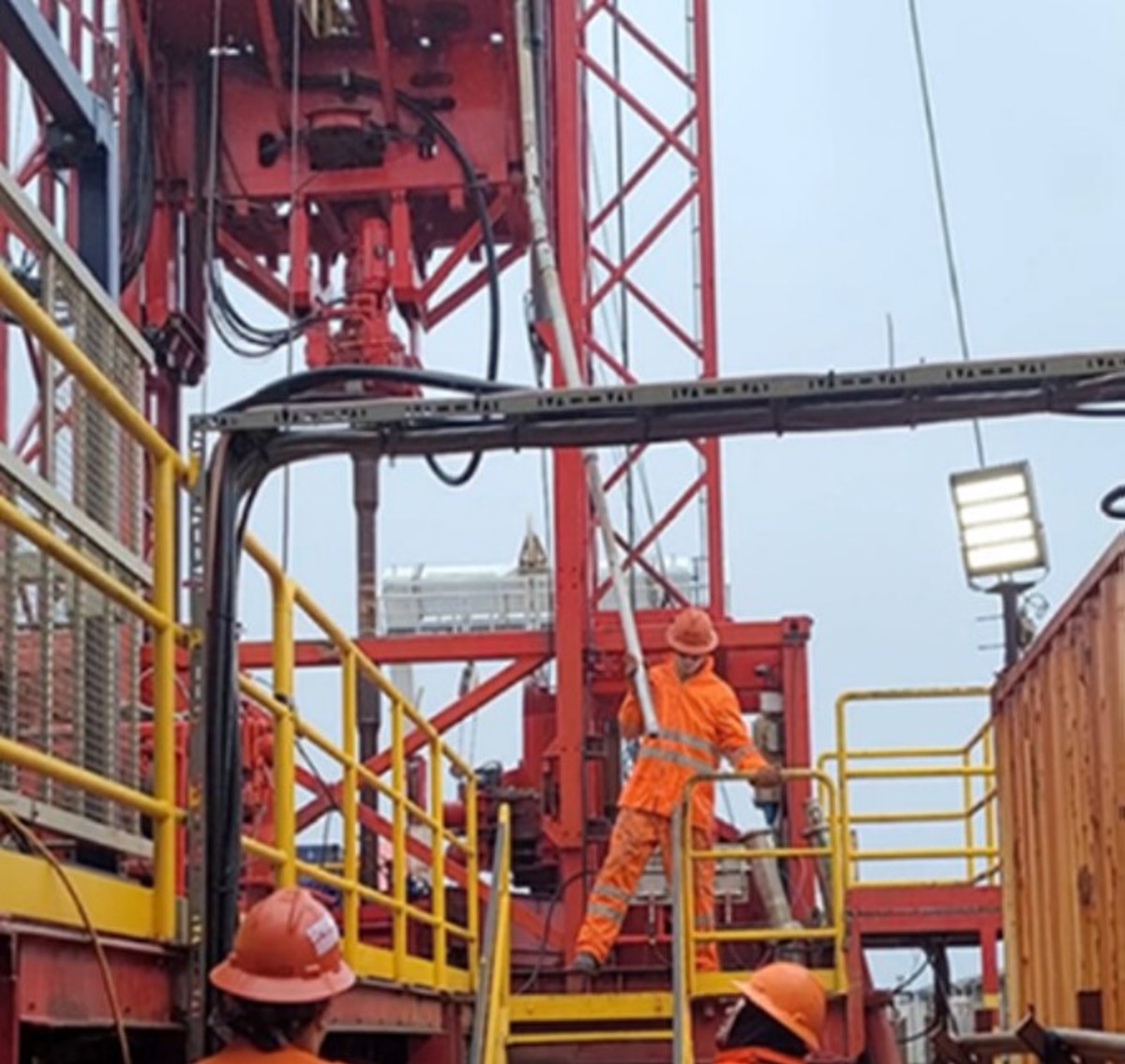Fall leading to serious personal injury
- Safety Flash
- Published on 5 September 2022
- Generated on 14 July 2025
- IMCA SF 20/22
- 2 minute read
Jump to:
A crew member suffered a fall leading to concussion and other serious injuries.
What happened?
The incident happened when he was single-handedly trying to hold and manoeuvre a drill tool into position for a certain task. The movement of the vessel combined with slippery conditions underfoot meant that he lost control of the swinging tool, which caused him to fall onto the raised platform floor/deck. He was concussed and sustained various soft tissue injuries.

What went wrong?
- Risk seen as tolerable: the technique for doing this particular task had been determined and accepted by management beforehand.
- The task risk assessment and work instructions did not specifically include the methodology or address specific risks associated with this task.
- The potential implications of the mixed sea conditions (operating in marginal (but within defined working limits) sea state for drilling operations), damp equipment and slippery deck (due to foggy conditions) were not sufficiently considered or mitigated in the task risk assessment and planning.
- The movement of the vessel coupled together with the layout of the drill floor resulted in the crewman placing himself in the line of fire while performing this task.
What went right?
- The incident response and management of the incident went well and exactly as planned in the project medical emergency response plan.
Lessons learned
- Update and review task risk assessments and procedures, and ensure personnel affected are properly briefed and instructed in the revised methods of doing the task.
- Engineering changes were made to the equipment used for this task, and to the task methodology:
- Equipment was installed to allow the drill tool to be manoeuvred and manipulated more easily, so that crew would be able to do this work on the drill tool with no lifting or dragging required, even when the vessel is heaving or rolling.
Related Safety Flashes
-
IMCA SF 12/22
12 May 2022
-
IMCA SF 34/20
16 December 2020
-
-
IMCA SF 16/20
22 May 2020
-
-
IMCA SF 17/22
14 July 2022
IMCA Safety Flashes summarise key safety matters and incidents, allowing lessons to be more easily learnt for the benefit of the entire offshore industry.
The effectiveness of the IMCA Safety Flash system depends on the industry sharing information and so avoiding repeat incidents. Incidents are classified according to IOGP's Life Saving Rules.
All information is anonymised or sanitised, as appropriate, and warnings for graphic content included where possible.
IMCA makes every effort to ensure both the accuracy and reliability of the information shared, but is not be liable for any guidance and/or recommendation and/or statement herein contained.
The information contained in this document does not fulfil or replace any individual's or Member's legal, regulatory or other duties or obligations in respect of their operations. Individuals and Members remain solely responsible for the safe, lawful and proper conduct of their operations.
Share your safety incidents with IMCA online. Sign-up to receive Safety Flashes straight to your email.